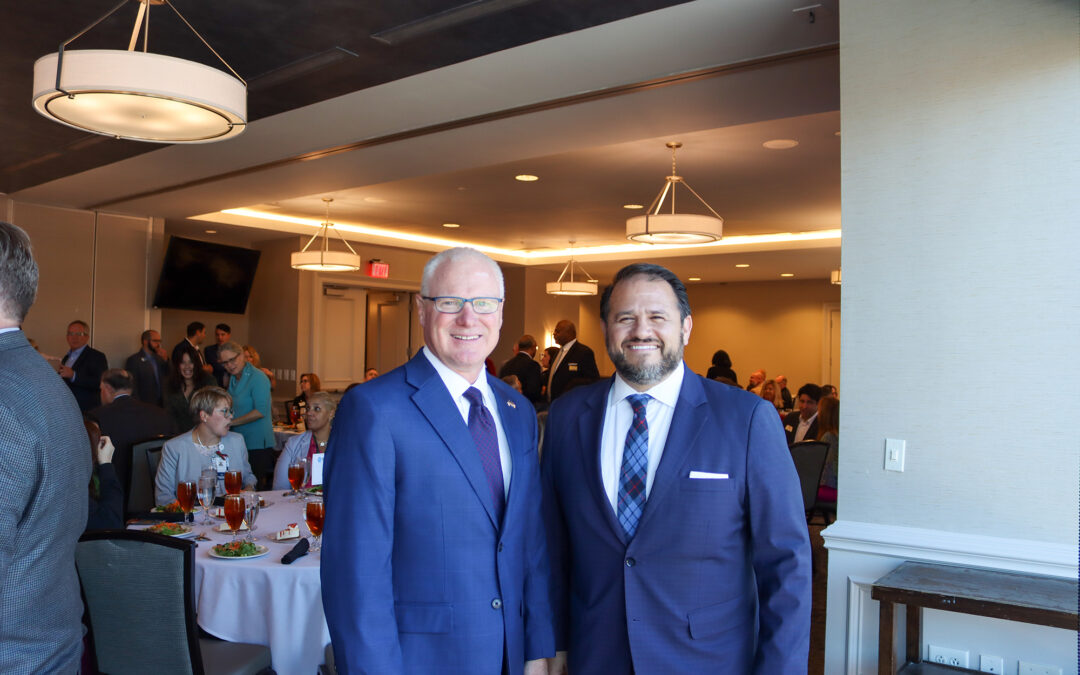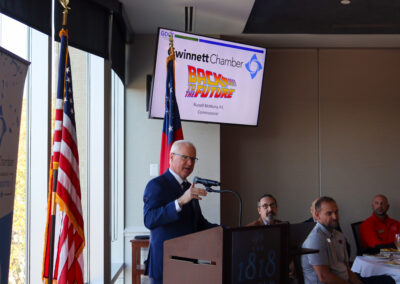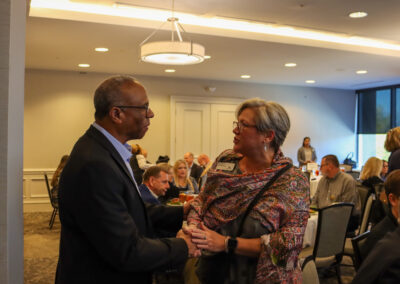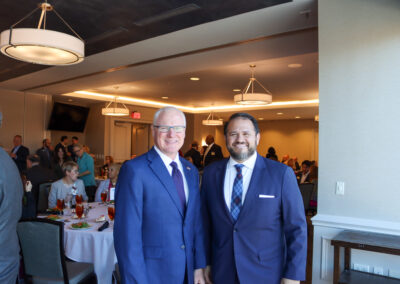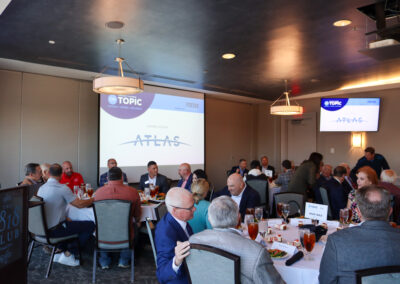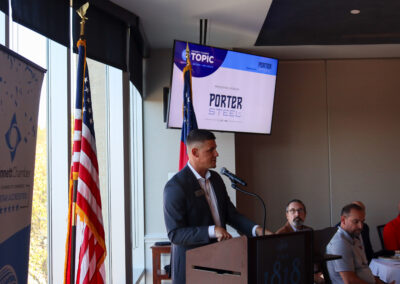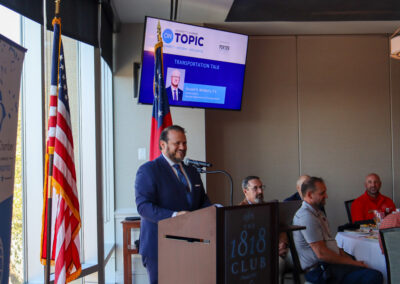Georgia Department of Transportation Commissioner Russell McMurry took attendees back to the future during the Gwinnett Chamber’s On Topic Luncheon presented by Porter Steel. He was, of course, referring to the idea that leaders must look long-term when planning infrastructure for the nation’s number one state in which to do business. It is after all a sizeable portion of what Area Development magazine has considered when naming Georgia at the top of this list for the last decade.
McMurry shared a bit about the past noting some key investments made in 2010 and 2015 that allowed for significant infrastructure repair and maintenance. And today, trade numbers that utilize Georgia’s ports, roadways, and rails continue to shatter records with $47 billion in exports and $196 billion in total trade for a 40% growth rate over the last five years. He also commended Gwinnett on its support of pedestrian improvements, technology investments, and major interchange projects that have all improved mobility in the county and throughout the metro Atlanta area. So, what does the future look like for Gwinnett and transportation?
McMurry broke it down by the numbers. In 2050, congestion costs associated with freight traffic – largely in manufacturing, distribution, and food & agriculture industries – is expected to increase by an average of 157%. Manufacturing is expected to grow by 77% over the same time, and food & agriculture by 43%. When considering that most of this growth will be moved by trucks on state roads, a study of the I-85 corridor becomes imperative. As it stands now, over 300,000 vehicles travel the Gwinnett stretch of I-85 on a daily basis. Roughly 35% of those vehicles are trucks that do not stop in Gwinnett and about the same number are vehicles that only go a stretch of two exits on the interstate. Combine all these factors and commuters must now plan an extra 30 minutes to arrive at their destination on time; a trend that must be addressed in the coming years to help ensure a strong and viable quality of life for metro Atlanta’s fastest-growing suburban community.
McMurry shared that planning today will support a more solid future for tomorrow, as he reminded the audience of this thought from Leonard Sweet, “The future is not something we enter; it is something we create.” Although mundane, infrastructure is the essential foundation on which thriving communities are built. By the will of our leaders and citizens, bold and forward-thinking plans will determine whether Gwinnett is prepared for the growth it sees today and is expected to see in the future.

